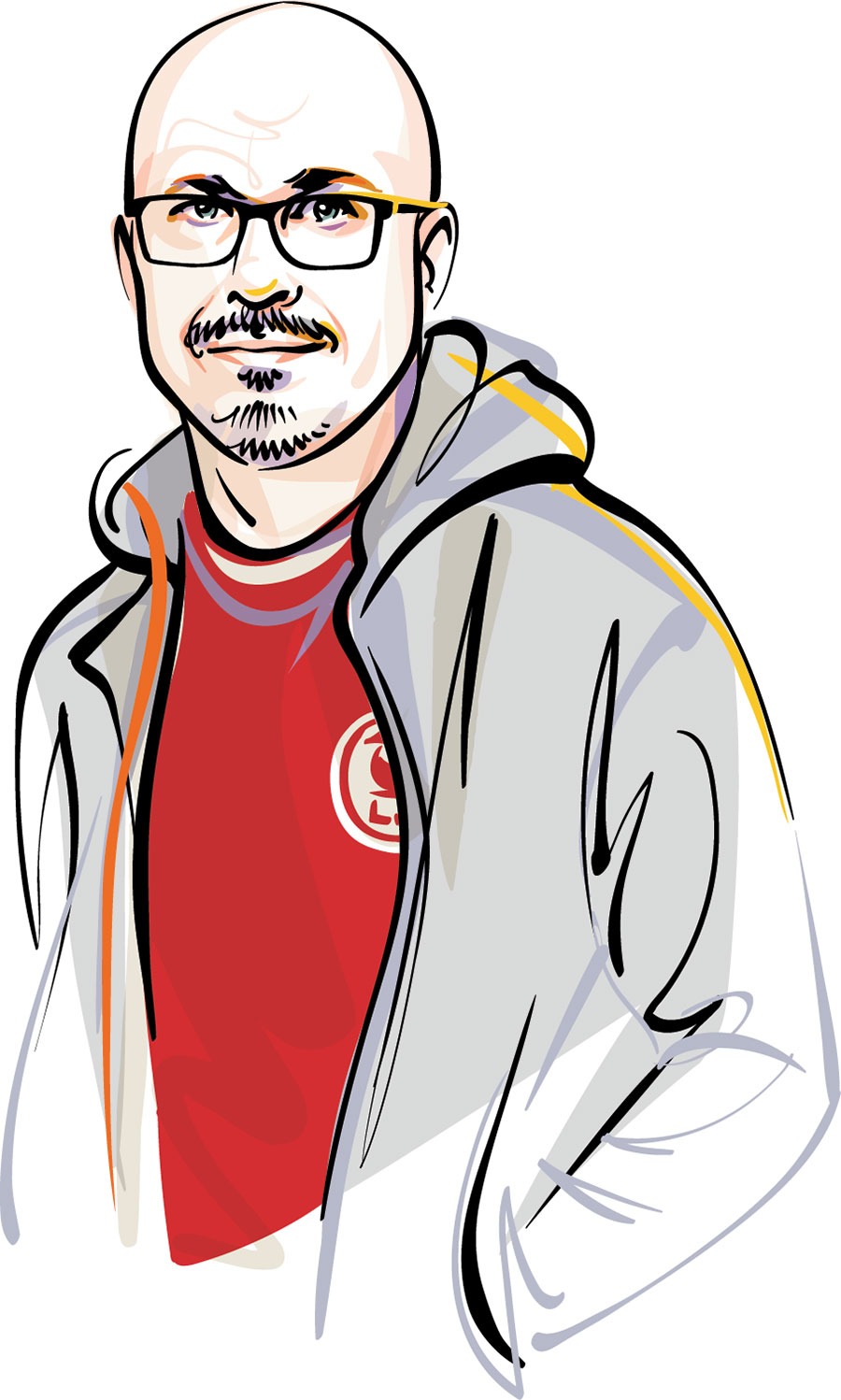■ Writing the new Matrix movie with Lana Wachowski and David Mitchell was like playing in the sandbox with my friends. The best part of working together is imagining worlds and situations. And because I am, relatively speaking, a realist by temperament, sometimes my role in that collaboration is what we call kicking the tires. I get hung up on logical consistency: “Well, what if 500 years from now they have a different technology?” So it’s a very symbiotic situation. And it’s always dynamic. No one says, “That’s a bad idea. Let’s not do that.” It’s always, “Yes, and …”
■ Imagination is difficult and dangerous. It requires courage to imagine beyond the limits of your comfort.
■ I work nonstop, but I long for laziness, for a situation in which I would get up in the morning and say, “Ah, I’m just not going to do anything,” which is what I did in high school and college. And so I trained myself to get up and go into my office, and every day I make something.
■ “The Aquarium,” a New Yorker story about my infant daughter’s death, was the hardest thing I’ve ever written and hopefully ever will write. I had all of these ideas and feelings, but I hadn’t processed them because they were not in language yet. I would just write and weep, and then I would wipe my eyes and go have lunch and I would go back and write again. I don’t think it changed anything about my relationship to Isabel’s illness and death. But I now have the record of it; I made something out of it.
■ When the pandemic started, there was this great anxiety everyone was experiencing. But rather than it paralyzing me, I became hypomanic. I finished the novel I’d been working on for 11 years. I started writing poetry. I started making music and myriad other things. I got into an entirely different gear.
■ The compulsiveness that drives me comes from a need to avoid catastrophes. I thrive under the risk. There’s always this living within a simulated situation of danger, that this novel, this story, this music track could come apart for whatever reason. And if it doesn’t, there are these microtriumphs and a sense of agency. As Rahm Emanuel said, “Never waste a crisis.”
■ I’ve compared writing books to building cathedrals with toothpicks. You glue them together one by one. It’s tedious and endless. Now I’m tenured at Princeton; I don’t have to write ever again. But this obsessive tending to details is what I’m addicted to. Choosing the right word in a 100,000-word novel, fully aware that people might not even notice that word at all — that’s the toothpick.
■ I wrote a few pieces in the summer of ’92 for a magazine my friends published in Bosnia. A couple of times, they called me on a satellite phone in the middle of a siege and I would dictate the piece. They wanted me to write film reviews. But my experience was so radically different from the people in Sarajevo at the time that I found I could not possibly tell them why they should or should not see Terminator 2.
■ My roommate and I lived in Edgewater. I remember once he came back after biking to work along the lake and said, “I just heard someone say, ‘Don’t smile at me, motherfucker, get off the bike path.’ ” It was a great sentence.
■ I was flattered when The Lazarus Project was nominated for a National Book Award. At the same time, I hated it. Because once I entered that, I wanted it. And I didn’t want to want it. The competitiveness of it drove me crazy. I took the call from the National Book Foundation in my basement, which was flooding. I was carrying a large pump, had twisted my back, and was standing in water up to my ankles in terrible pain. And they’re saying, “Congratulations.” There’s always life, no matter what level you are on.



